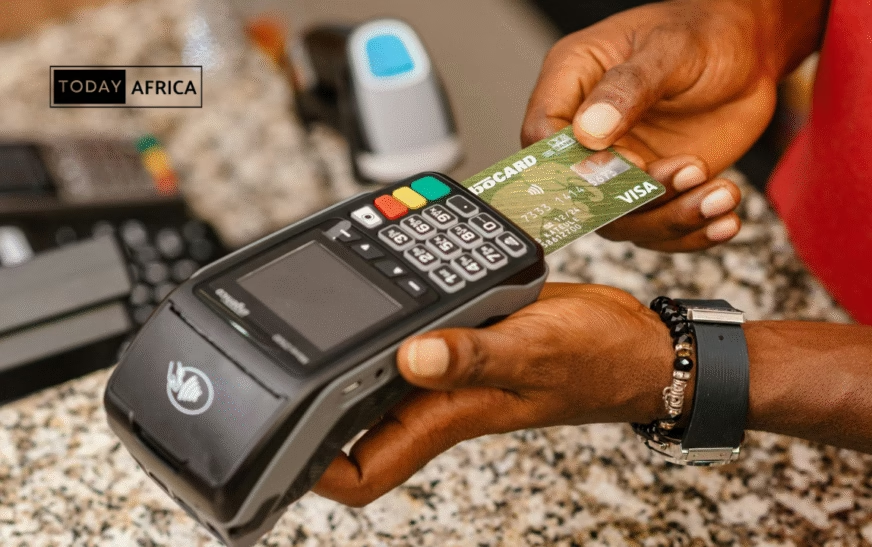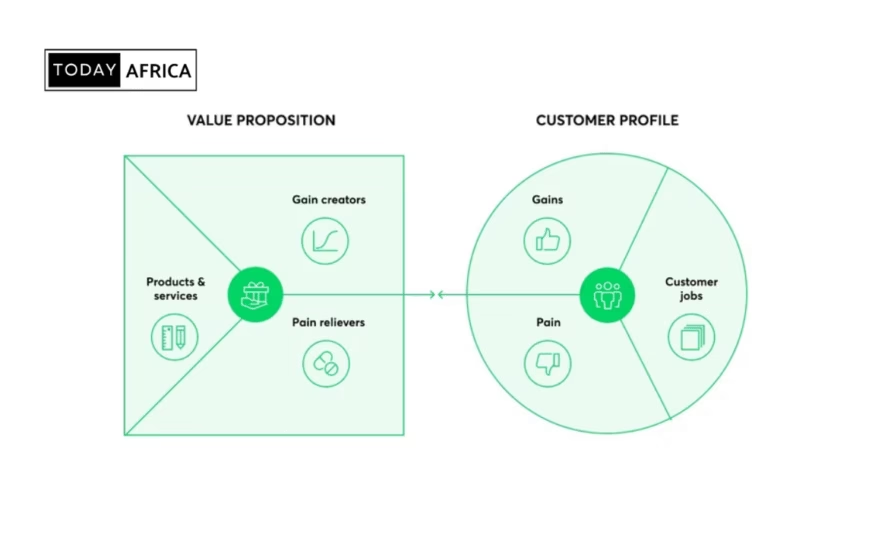Divine Idokoh is proving that passion, curiosity, and a deep love for solving problems can spark a movement capable of transforming lives and industries.
As the co-founder of ValleyBee, Divine is leading a team of young innovators on a mission to protect bees, empower farmers, and secure Nigeria’s food future – all while juggling the demands of being a university student.
Her journey began with a simple stroll to a maize farm that led to life-changing conversations, deep research, and the birth of a startup that’s combining technology and nature to create sustainable solutions.
From bootstrapping with recycled materials to building sensor-driven hives that help farmers increase yields and reduce honey imports, Divine’s story is one of resilience, innovation, and impact.
This is not just a story about beekeeping; it’s about redefining what’s possible when young Africans refuse to wait for perfect conditions and instead start where they are, with what they have. It’s about tackling climate change, food insecurity, and economic challenges head-on with ingenuity and grit.
In this interview with Today Africa, Divine Idokoh shares how ValleyBee is tackling food insecurity, empowering farmers with smart beekeeping technology, and her vision to reduce Nigeria’s dependence on imported honey.
Tell us more about yourself
By day, Divine Idokoh is an Agricultural Economics and Extension student; by night, she slips into her role as a UI/UX designer, immersed in glowing screens and interface grids.
“I love music. I love to research agriculture,” she says with an easy laugh, though neither of these loves explains how she became the co-founder of ValleyBee, a company using technology to increase the productivity of beehives.
Agriculture wasn’t even her first choice of study. But something about the discipline, the quiet power of plants and cycles and soil, pulled her in. “I just fell in love with the course,” she says simply.
And beyond her entrepreneurial and academic pursuits, there’s another side to her: the volunteer who gravitates toward children, “I just find myself there,” she admits, as though even she can’t fully explain it.
When she isn’t strategizing for ValleyBee, Divine serves as COO of Livestocx, a digital livestock marketplace. It’s a lot to juggle for anyone, let alone a full-time student.
But Divine’s life is stitched together by curiosity, grit, and a kind of quiet conviction that belies her youth.
How do you manage your time running your business and being a student?
Divine doesn’t pretend it’s easy. “If I was the only person running ValleyBee by myself, I don’t think I would be here today,” she admits.
The secret lies in her team—people who understand her dual life as an entrepreneur and a student. “They help me run some other things that I’m not able to cover myself.”
Her time is a carefully balanced ledger: studies get priority during school sessions, while holidays are reserved for ValleyBee’s outreach and fieldwork.
“I know when to face my studies, I know when to balance it,” she says. The support of those around her has been critical. “The people around me have been super helpful because they all understand.”
Read Also: From ₦30,000 Loan to Factory to Exports: Business Story of Adanne Uche
What sparked the idea for your business?
It began with a simple walk.
Shortly after gaining admission, still settling into post-COVID campus life, Divine wandered out of her house during a short holiday.
She found herself near a maize farm. The crops were green and lush—except for one. A cob had opened, but it was bare, unpollinated.
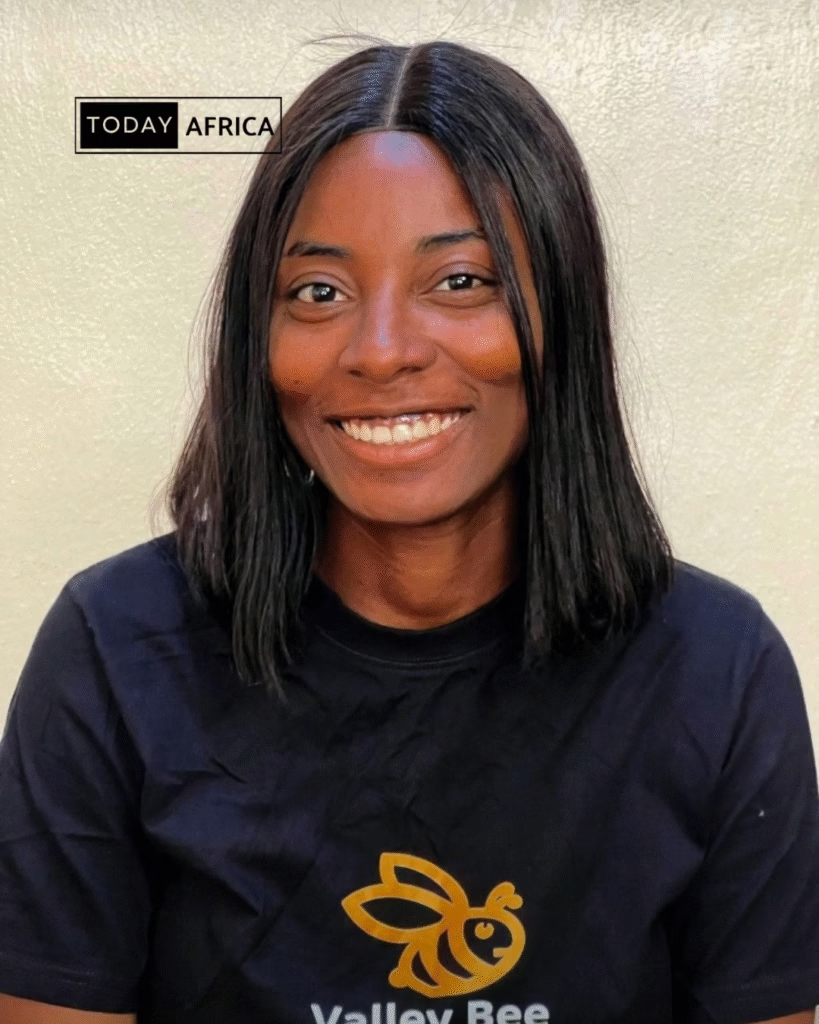
Driven by curiosity, she stepped into the field and met the farmer. “He was also curious—he asked if I lost my way,” she recalls. “I said, no, I intentionally entered because I saw something and I wanted to just ask questions.”
The farmer explained: the rain came, the fertilizers worked, but something was missing. At first, Divine didn’t understand. Later, her research revealed the missing link: pollinators.
She stumbled on posts about farmers losing crops due to climate change and a dramatic decline in bees. Dangerous farming practices—pesticides and fertilizers—were killing off bees that should have pollinated the crops.
“It was so connected,” she remembers. “I was like, what if these bees now are the ones that we need, apart from the rain? They pollinate about 90% of the crops we eat.”
Even conversations with classmates reinforced her growing awareness. One told her about sourcing honey for a diabetic father because honey is safer than processed sugar. Divine noticed she didn’t see bees around as much as in her secondary school days.
From this tangle of observations and questions, an idea emerged: What if technology could protect bees, boost honey production for health purposes, and improve crop yields? That question became ValleyBee.
How much did you use in starting your business, and what were your first tools?
In the beginning, there was no funding, no investors—just “a group of youths trying to push an idea with passion.” ValleyBee was built on scraps and belief.
They partnered with a beekeeper who “believed so much in our idea.” Using discarded drums and wood parts, they fashioned prototypes that wouldn’t harm bees. “We ensured that whatever it is we were using, it shouldn’t be harmful to bees.”
The beekeeper, now deceased, provided safety gear and tools they couldn’t afford. “Even our most important implement at that time—the sensor—we were able to just put together one or two things and bought just one for that prototype too.”
This was bootstrapping at its purest: creativity in place of cash.
Tell us about your products and services.
ValleyBee isn’t just about bees—it’s about systems. The company offers honey, safety gear like protective suits, and hives for sale. They also run training sessions and workshops for universities, research institutions, and climate-conscious organizations.
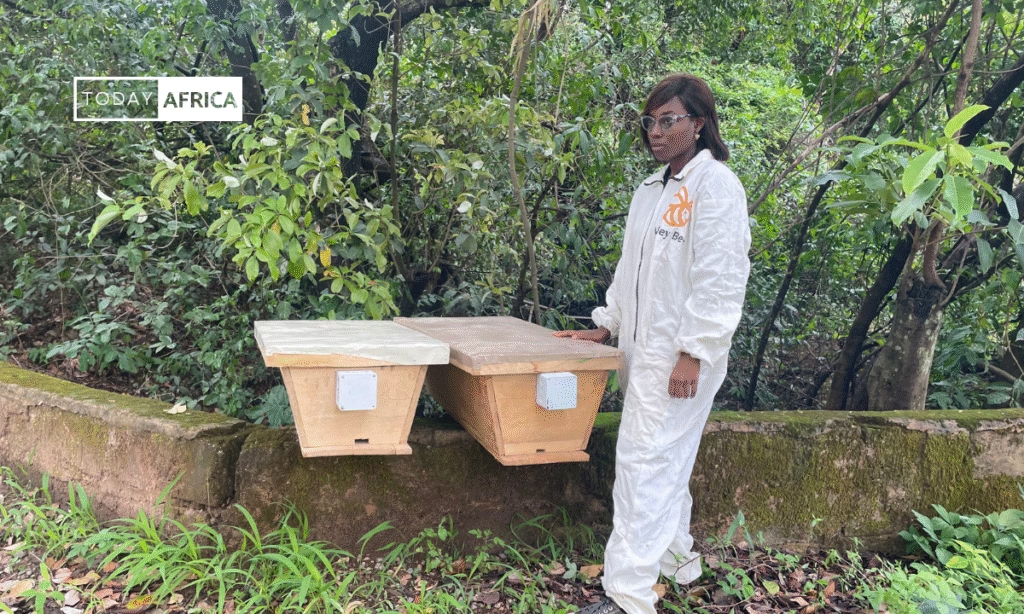
“We offer training sessions to people inclined with climate change work or agricultural practices,” Divine explains. It’s a blend of commerce and education designed to protect bees and empower farmers.
What problem does ValleyBee solve that traditional beekeeping can’t?
Traditional beekeeping relies on intuition and manual checks. ValleyBee introduces precision.
“With our sensors, you can track the temperature of the beehives and help detect early if there’s something wrong with your bees,” Divine says.
Diseases, environmental stressors – these can be spotted and solved before they devastate a colony.
This technology helps boost local honey production and, by extension, reduces Nigeria’s dependence on imported honey.
Read Also: How Olamide Ilori is Building Africa’s Fintech Future Through Front-End Engineering
How do you plan to reduce the importation of honey?
“It’s about pushing knowledge,” Divine says. Many Nigerians don’t understand the economic potential of bees, or they’re scared of them. In Jos and across Plateau State, beekeepers are few and far between.
ValleyBee’s strategy is to demonstrate success—showing others that bees can be cared for safely and profitably.
“Once we understand the knowledge and how to keep bees and produce honey, there won’t be a need for importing it from other countries,” she explains.
What was the hardest part in your first 12 months and how did you push through it?
Cultural resistance.
Many farmers – especially older ones – were wary of ValleyBee’s technology. “They felt threatened, like, who are these young ones coming with ideas?” Divine recalls. One man even scoffed, “Bees don’t need Wi-Fi.”
Convincing people required patience and proof. “We pushed through with consistency and demonstration,” she says.
Showing tangible results – higher honey yields, healthier crops, real income – eventually silenced skeptics.
How do bees help solve food security?
Divine calls them “the hidden workforce behind our food system.”
“If bees are in control of 90% of the kind of food we eat, imagine if they are not even in existence anymore,” she says. Without bees, farmers turn to chemicals, leading to health risks and environmental damage.
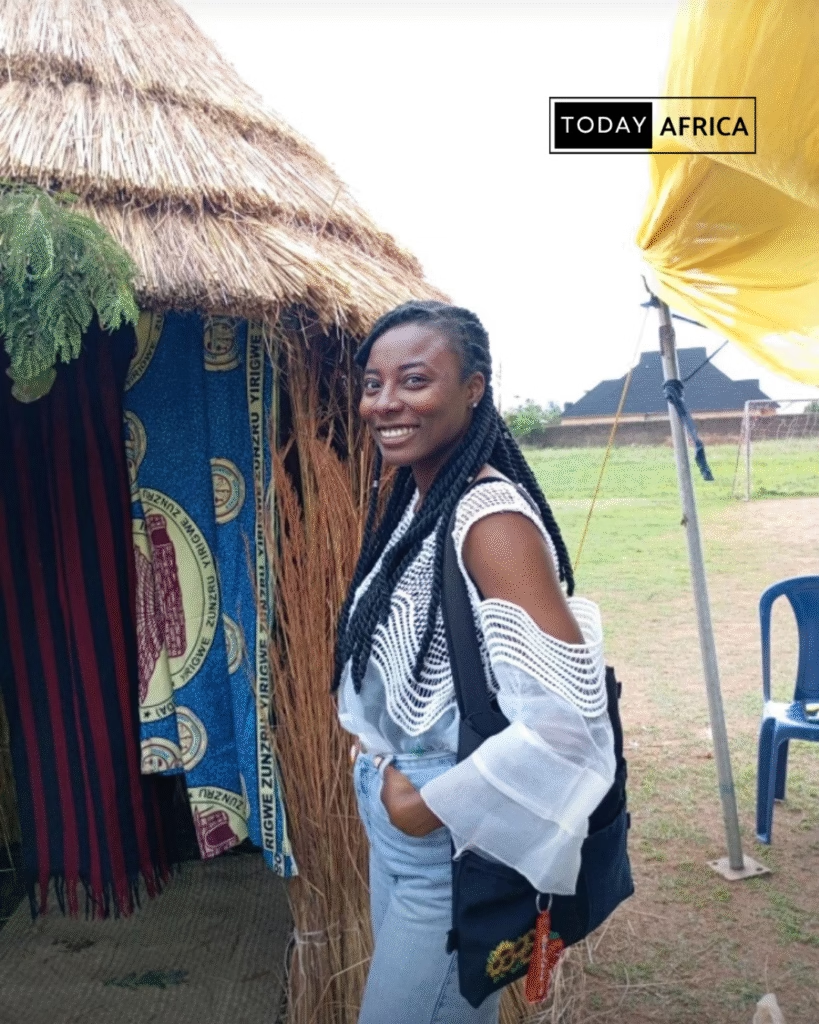
She recalls her father warning her about apples grown with harmful chemicals. “Bees just help us pollinate naturally. They don’t need chemicals,” she says. By protecting bees, ValleyBee is protecting food security and agricultural sustainability.
Read Also: Why Atamelang Free Said No to a 9–5 and Built a Skincare Brand Instead
Why does Nigeria need an online livestock market?
The middlemen problem.
Farmers moving animals from Lagos to Abuja are often exploited by middlemen who inflate prices, creating distrust between sellers and buyers. Livestocx eliminates that. “You deal with your customers directly,” Divine explains.
It’s about fairness and transparency: trusted sellers, trusted buyers, and no unnecessary markups.
How do you build trust between the buyers and the sellers?
Through an escrow system and a network of agents in key locations.
Sellers don’t get paid until buyers inspect and confirm the goods. “We hold the money for you as the seller, then we have agents in different places,” Divine explains.
These agents verify transactions on both ends before releasing funds. It’s a system designed to replace distrust with confidence.
How have inflation, FX rates, and government policy directly influenced your business strategy and survival?
The first time inflation struck hard, it wasn’t abstract numbers on a chart—it was the moment she realized they couldn’t deliver five beehives to an institution. One missing sensor, now too expensive to import, stalled the entire operation.
“Inflation has made it hard to get some of the materials we usually get, like the sensors we use for the beehives,” she says. “We had to be creative about what we’re doing because of inflation, so we found local people around us to support us and produce for us instead of importing.”
The setback forced ingenuity. By tapping into local talent, the team not only survived but built resilience into their operations.
“It hit us hard,” she admits, “but it pushed us into seeing other creative ways to go about our work, to be ready any time somebody orders the hives.”
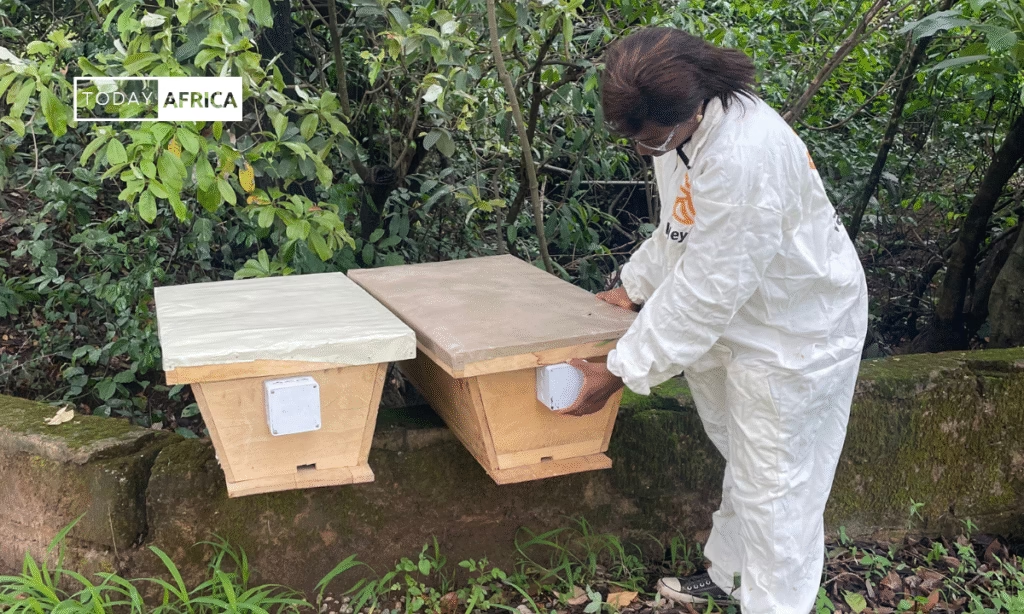
What is your revenue model and average monthly revenue or order volume?
ValleyBee’s income flows from multiple streams: hive installations, training programs, and honey sales.
“We earn revenue from hive installations and the training programs we offer,” she explains.
“We train people who are currently running an agriculture program, or are interested in learning more about bee farming. And we sell and install the hives—that way we show them how to go about it.”
The company also manages its own hives in Nasarawa, Benue, and Plateau, with people stationed in those areas to oversee operations. “When we make our honey ourselves, we generate money too from the honey that we sell. We generate revenue through the training programs we hold and the workshops we organize.”
But the income isn’t steady. “Our monthly revenue depends on the season and the number of training engagements we get,” she says frankly. “It hasn’t been sustainable enough.”
Read Also: Startup Stories of 16 African Entrepreneurs We Interviewed
What’s been your most successful marketing strategy, and how do you keep your customers loyal?
“Our marketing strategy has just been letting people see our work,” she says.
In the early days, skepticism was their constant companion. “When we started out, a lot of people looked at us and doubted what we could offer them,” she recalls.
But persistence paid off. “We kept pushing. It wasn’t easy, but we pushed.” One day, a message landed in her inbox that felt like a turning point.
“Someone reached out and said they remember when we came to pitch the idea because we were looking for possible partnerships. She said they like the work we’re doing and can finally see that our idea is going places.”
Customer loyalty, she explains, comes from connection. “We stay connected with them through checkups and follow-ups: How are you doing? How are the hives? Is there a problem? How can we help? That’s how we’ve been able to maintain our customers.”
Explain your technology to us
Each hive in ValleyBee’s network carries more than bees—it carries data.
“Our sensor tracks humidity and temperature in the hives,” she says. “It runs on solar power and there’s an app it’s connected to. As we’re installing these hives, we set up your account to connect it to the hives.”
Inside the sensor is a small compartment for water and a fan. “If the temperature is too high for the bees, it alerts you on your phone that you need to cool it down. You just click the switch to turn on the fan, and it cools the whole place.”
With each alert—whether it’s heat or humidity—the beekeeper gets real-time instructions. “Just click it and it works,” she says simply.
How did you find the right people, and what systems help your team run smoothly?
“I would say the right people found me, and I found the right people too,” she reflects.
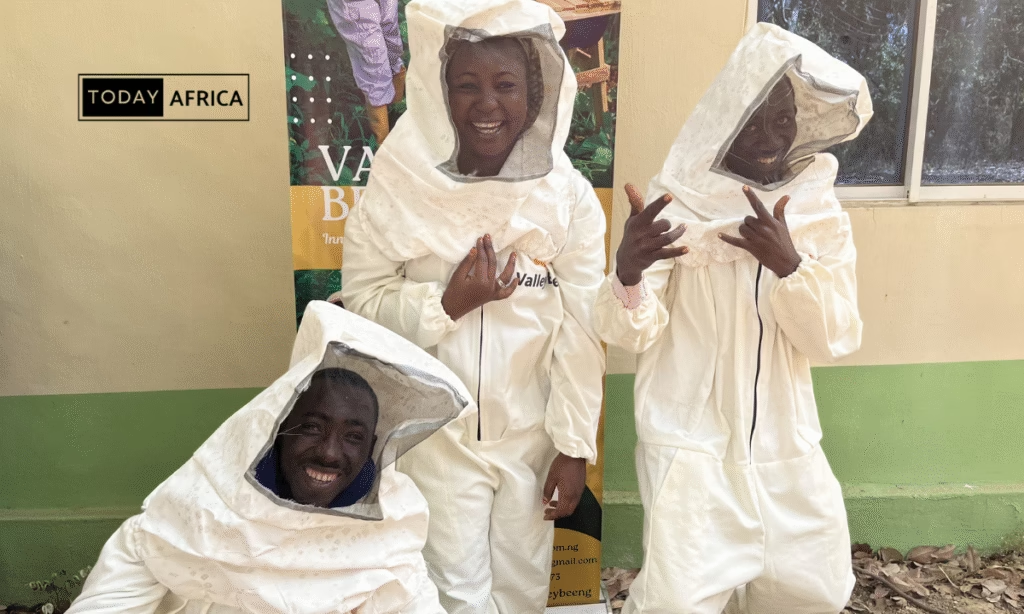
It began during a volunteering outreach where she and others were training women on design tools and opportunities in technology. A casual conversation turned into something bigger.
“We spoke about the idea of bees, and I noticed about three people were interested in the idea. One of them mentioned his dad is a beekeeper in Benue.”
From that moment, a mission was born. “My team members are mission-driven. We see things not just for now, but for the future.”
Curiosity, more than credentials, binds them. “We don’t really have engineers among us. Most of us are just curious people, and out of our curiosity, ValleyBee came to life.”
Read Also: Peter Browne on Using Tech, Faith, & Innovation to Empower Emerging Farmers
What was your biggest setback in business, and how did you overcome it?
The community’s trust had been hard-won. Then came the storm.
“We installed these hives and there was this rain and storm that scattered the whole hives,” she says. “The whole trust issues came up. They were like, you guys told us this, so what’s happening?”
She pauses. “We didn’t really know how to explain because they didn’t want to understand it was the weather.”
Walking away wasn’t an option. Instead, they returned to the village and replaced what they could. “We stayed with them all through to show them that we didn’t come to just install these hives and run away.”
Where do you see your business in 3 to 5 years?
Her vision is expansive.
“Where we see ValleyBee in the next 3 to 5 years is to be a smart and big bee network in West Africa. Our target is West Africa and beyond.”
She imagines hives as environmental sentinels, deployed in schools, farms, and research labs. “We want to grow the economy status of each country, ensure food security, and build climate-conscious innovations wherever we enter.”
What three truths about entrepreneurship have you learned that no book or course ever taught you?
“The first one: a NO today could be a YES tomorrow,” she says.
Rejections piled up in the early days, but everything changed with one breakthrough. “When we were awarded a grant by the United States African Development Foundation, we realized: no book told me that every failure is a chance to be better.”
“Second: your idea will not always be understood in the beginning. People didn’t understand what we were doing. But as they begin to see the impacts you’re making, they’ll understand.”
“Third: momentum is more powerful than motivation. You can be motivated, but if you don’t start, nothing happens. There’s no business without doing.”
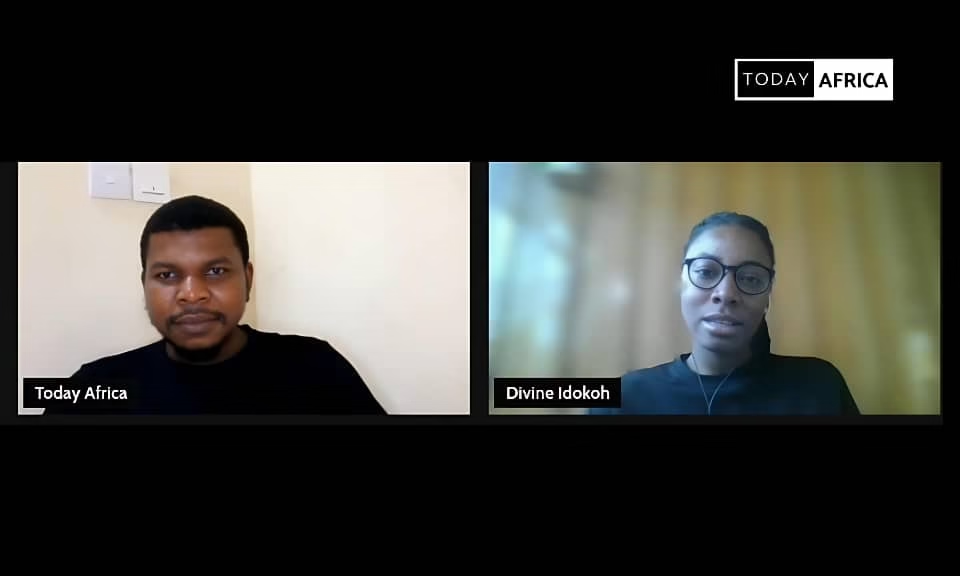
Who’s one farmer or beekeeper that you’ll never forget?
At the College of Forestry in Jos, they were holding a training session on beekeeping when she noticed a young woman standing off to the side.
“She wasn’t even part of the students,” she remembers. “She said she escorted her friend that was coming around. And from there, she picked interest in beekeeping.”
Her name was Nafisat. Months later, Nafisat installed her own hive in her backyard. “After keeping in touch, she reached out and said her bees were doing so well. She was able to produce honey and she sold it. She was so happy.”
That joy stuck with her. “Seeing how happy she was—it was something that kept us moving. Now she doesn’t really need our help anymore. She just keeps showing us what she’s been able to do.”
Read Also: Ayoola Ogunyomi on Bridging the Investment-Exit Gap in Africa’s Startup Ecosystem
If a teenager hears this, what do you want them to take away from it?
“You do not have to have it all figured out. Start from where you are. Use what you have. Be creative,” she says.
When ValleyBee lacked wood for hives, they turned to recyclable materials. “The environment can give you the big things you need to start your idea.”
Her advice is simple but potent: “Build something that helps people. When you do that, people are always interested in supporting you. You don’t need to be ready—you just need to be willing and consistent.”
Contact or follow Divine Idokoh:
Leave a comment and follow us on social media for more tips:
- Facebook: Today Africa
- Instagram: Today Africa
- Twitter: Today Africa
- LinkedIn: Today Africa
- YouTube: Today Africa Studio





